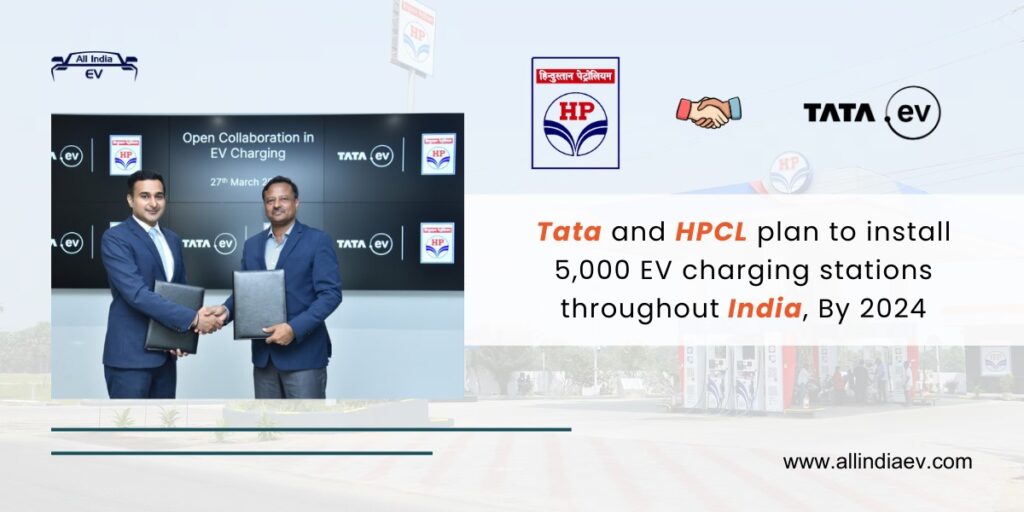
Tata and HPCL Aim to Establish 5,000 EV Charging Stations Nationwide by 2024
Tata Passenger Electric Mobility Ltd. (TPEM), a leader in electric vehicle (EV) manufacturing in India, has recently forged a strategic alliance with Hindustan Petroleum Corporation Ltd. (HPCL) by signing a Memorandum of Understanding (MOU) on Wednesday. This collaboration aims to roll out a network of public EV charging stations throughout India.
The partnership is designed to boost the adoption of electric vehicles nationwide and enhance the overall EV ownership experience. Among the initiatives under consideration is the launch of a co-branded RFID card to streamline the charging process for users.
“As the adoption of EVs increases, the availability of widespread and dependable charging infrastructure will play a crucial role in making EVs mainstream in India. This strategic partnership with HPCL emphasises our dedication to advancing India’s EV ecosystem.”
Balaje Rajan, Chief Strategy Officer at TPEM and Tata Motors Passenger Vehicles Ltd. (PMPV), in a company statement, said.
TPEM, holding over 68% of the market share in the electric passenger vehicle segment, has recently inaugurated its first exclusive EV store in Gurugram. It has also collaborated with multiple charge point operators to expand the charging infrastructure across the country.
“HPCL shall leverage Tata Motors’ vehicle base to enable our strategic expansion in EV Charging infrastructure at places with higher charging demand and will help in reducing range anxiety of EV customers.”
Debashis Chakraverty, Chief General Manager, Retail Strategy & BD, HPCL, added.
HPCL, boasting a nationwide network of approximately 21,500 fuel stations, has set a target to establish 5,000 electric vehicle charging stations by December 2024.
Moreover, in a move to further expand India’s charging network, TPEM entered into another MoU with charge point operators — Chargezone, Glida, Statiq, and Zeon — in December 2023. This agreement aims to set up over 10,000 charging points across the country by FY25, marking another significant step towards enhancing the EV infrastructure.
Content Credit: CNBC
